3 plants to avoid in your home, according to Feng Shui principles
A Feng Shui expert offers their opinions on the best and worst Feng Shui plants
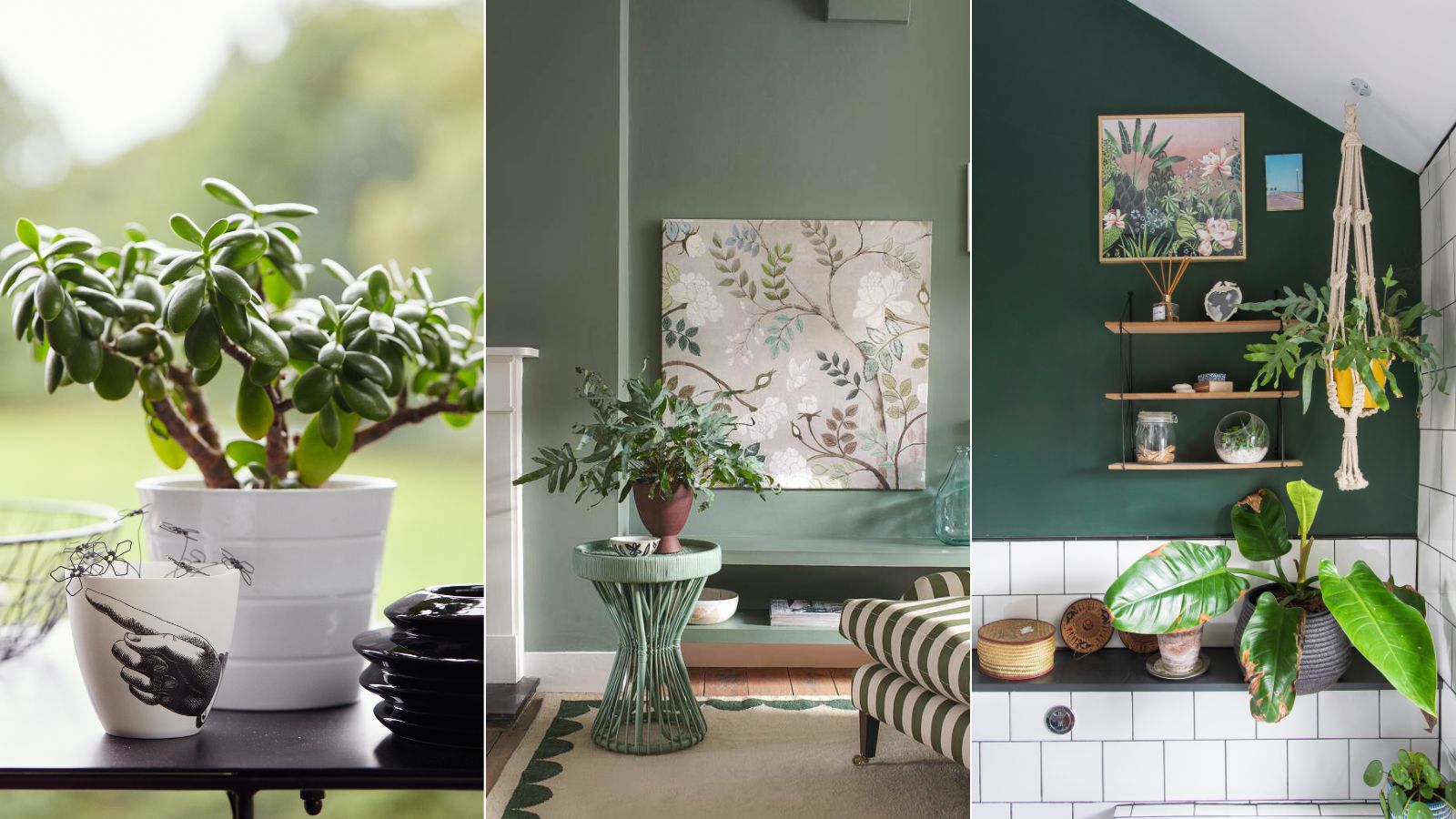

Choosing the right Feng Shui plants is vital if you want to encourage positive energy in your home.
Houseplants have a powerful ability to not only improve aesthetics but also nourish personal energy. These natural decor pieces strengthen the energy of the wood element which brings energy for growth and action to a space.
As we continue our obsession with house plants even as the world reopens, a Feng Shui expert offers their advice as to the best and worst plants you can bring into your home.
The 'bad' Feng Shui plants to avoid
The placement of Feng Shui plants can have an enormous impact on the flow and energy of your home. For example, some plants may be ruining your sleep, according to Feng Shui experts.
'It is important to note that not all plants are equally effective at promoting harmony,' explains astrologer and numerologist Sadye Osborne. 'In fact, some plants are thought to have the opposite effect, disrupting the flow of energy and creating disharmony.
'When it comes to the effects of plants on Feng Shui, it is essential to consider the specific plant and its symbolism.
'As anyone who's tried to sell a house can tell you, first impressions are important. And when it comes to Feng Shui, there are certain plants that can give your home an instant negative vibe.'
1. Cacti
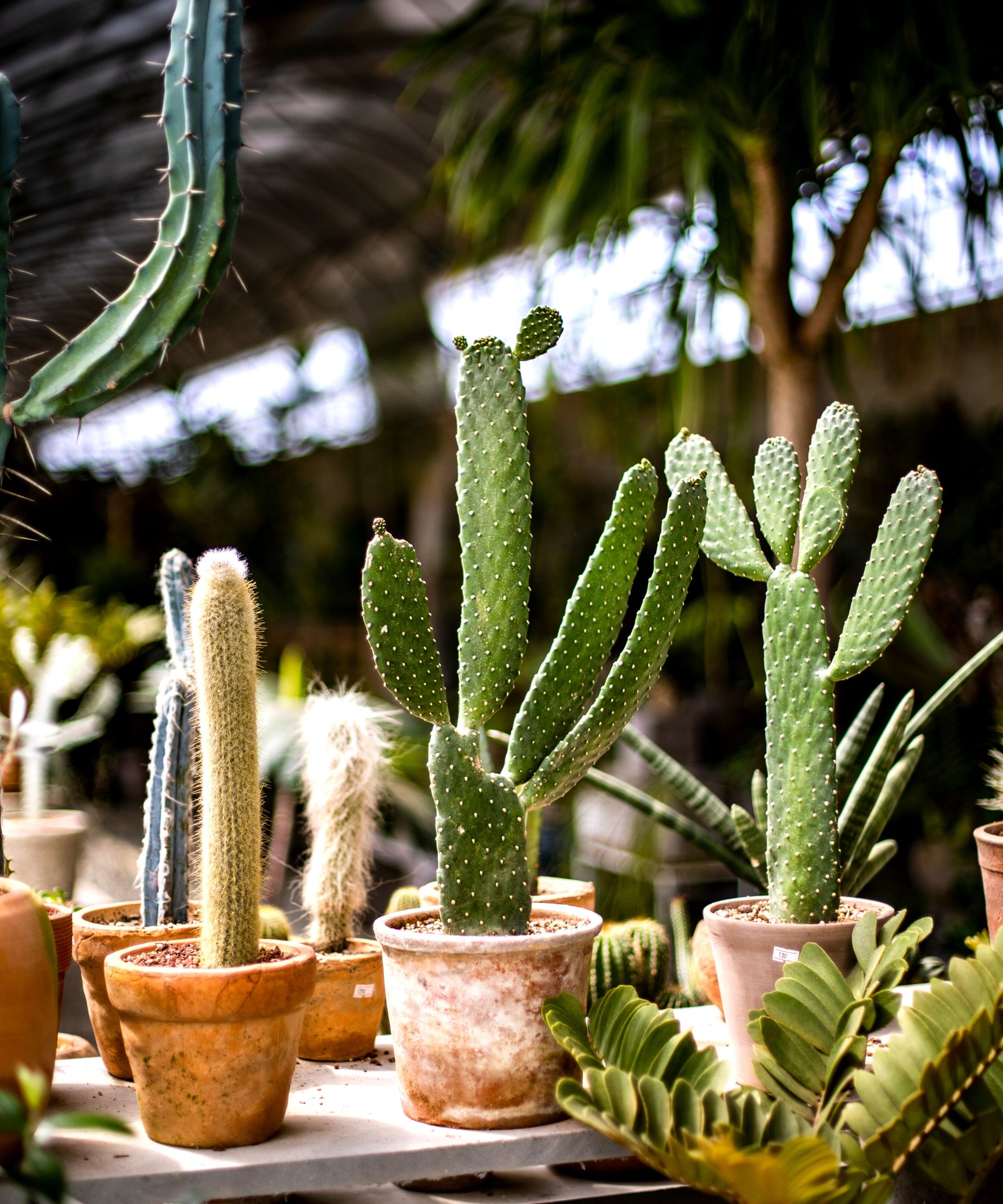
If you want to create a calming space, it is best to avoid using cacti and other prickly plants such as thorny roses. 'These sharp-edged plants are said to represent conflict and disharmony' she explains.
2. Toxic plants
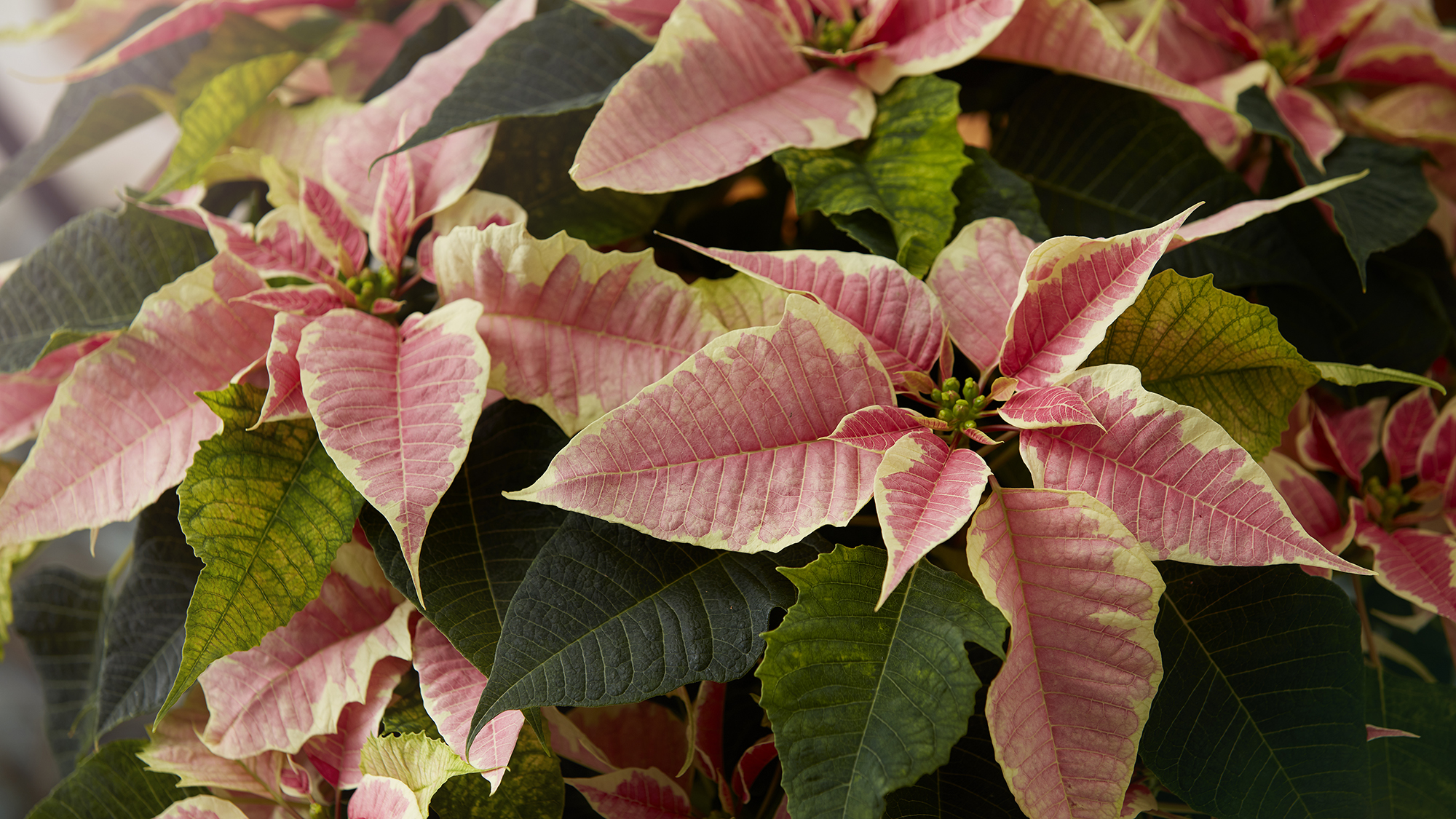
You should also aim to avoid toxic or poisonous plants in your home as they will tarnish good energy and risk increasing negative energy. You should also make sure to look after and nourish your plants as dying or neglected plants can cultivate draining energy. ensure you have the right environment to nurture them in order to care for yourself.
3. Dying plants
Keeping dying plants in your home could be more detrimental than you might think. Not only do dying or lifeless plants look unsightly, but they could also be blocking you from receiving positive energy and good furniture.
The 'good' Feng Shui plants
In general, most plants are good for Feng Shui, as long as you care for them well. Here are some of the best indoor plants to include in your home when planning Feng Shui.
1. Bamboo
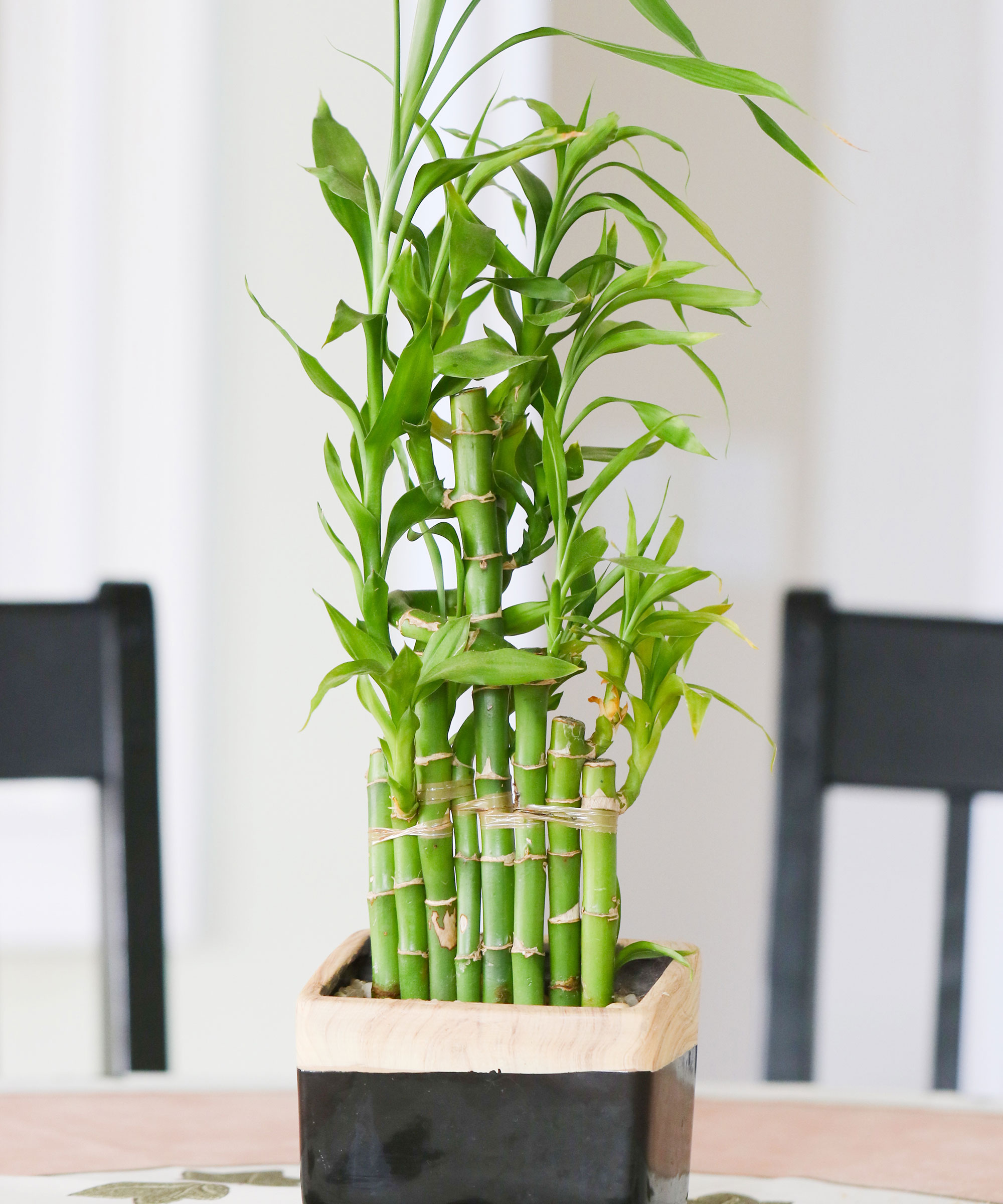
Bamboo is one of the most common Feng Shui plants for encouraging positive energy as its upward growth is associated with mobility and improvement. For this reason, it is a great plant to consider for office Feng Shui as it is believed to help with mobility in your career. It is also a simple plant to care for, requiring only moderate light and semi-frequent watering to keep the soil damp at all times.
2. Palm
Palm is another ideal Feng Shui plant. The areca palm (also called the butterfly palm) is a firm favorite of Feng Shui enthusiasts for its soft leaves that will cushion against harsh energies. This plant required more full, direct sunlight than bamboo and can grow quite large so needs to be positioned accordingly.
3. Ferns
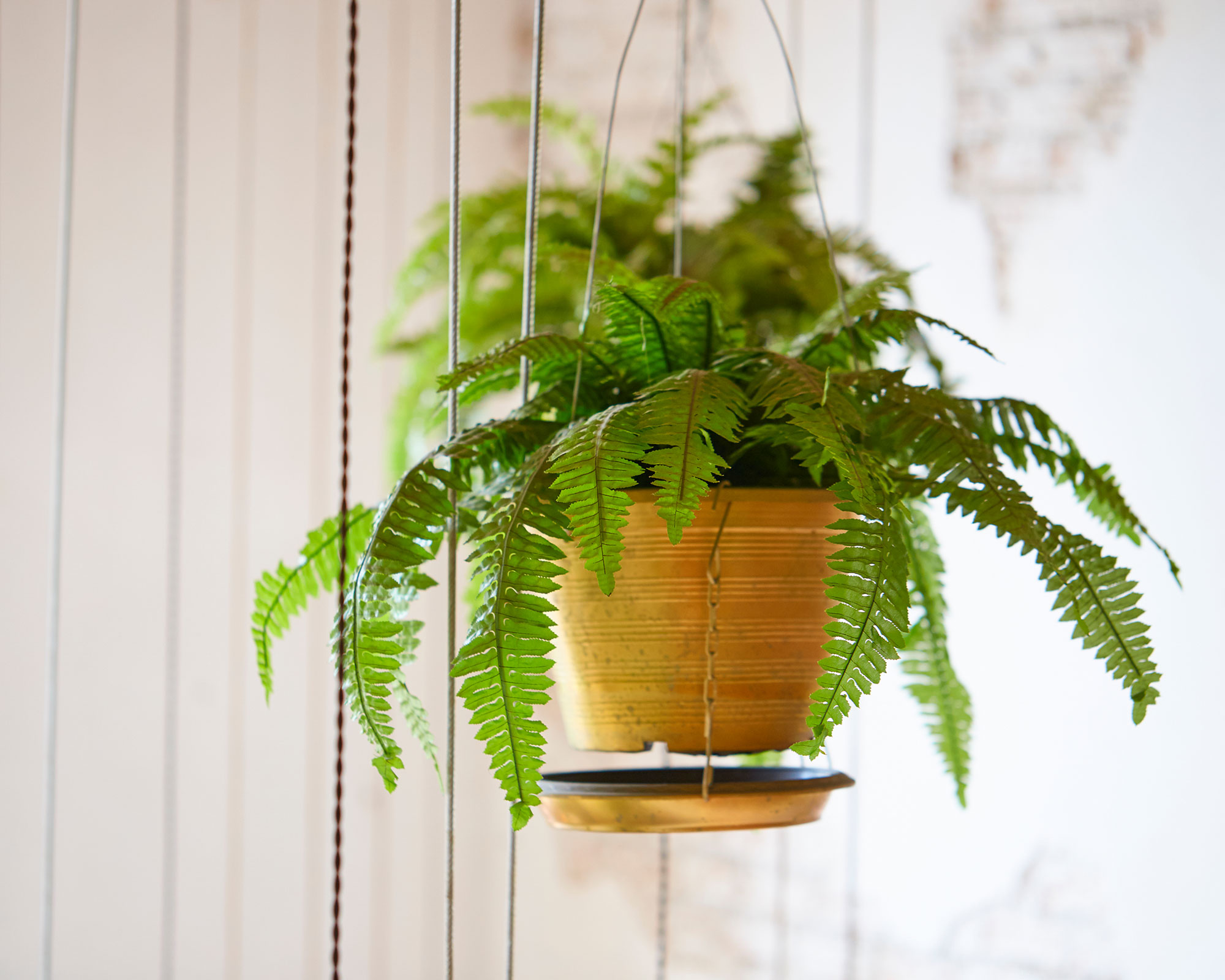
Ferns such as the Boston fern are not only popular for their cleansing Feng Shui effect but also for their ability to cleanse the air and remove pollutants. They also come small enough to be displayed as a lush hanging plant in a room with indirect sunlight. Ensure the soil is constantly kept damp and spray occasionally to maintain the plant's need for humidity – this would be a great plant to balance the energy in the smaller spaces of bathrooms.
4. Money tree
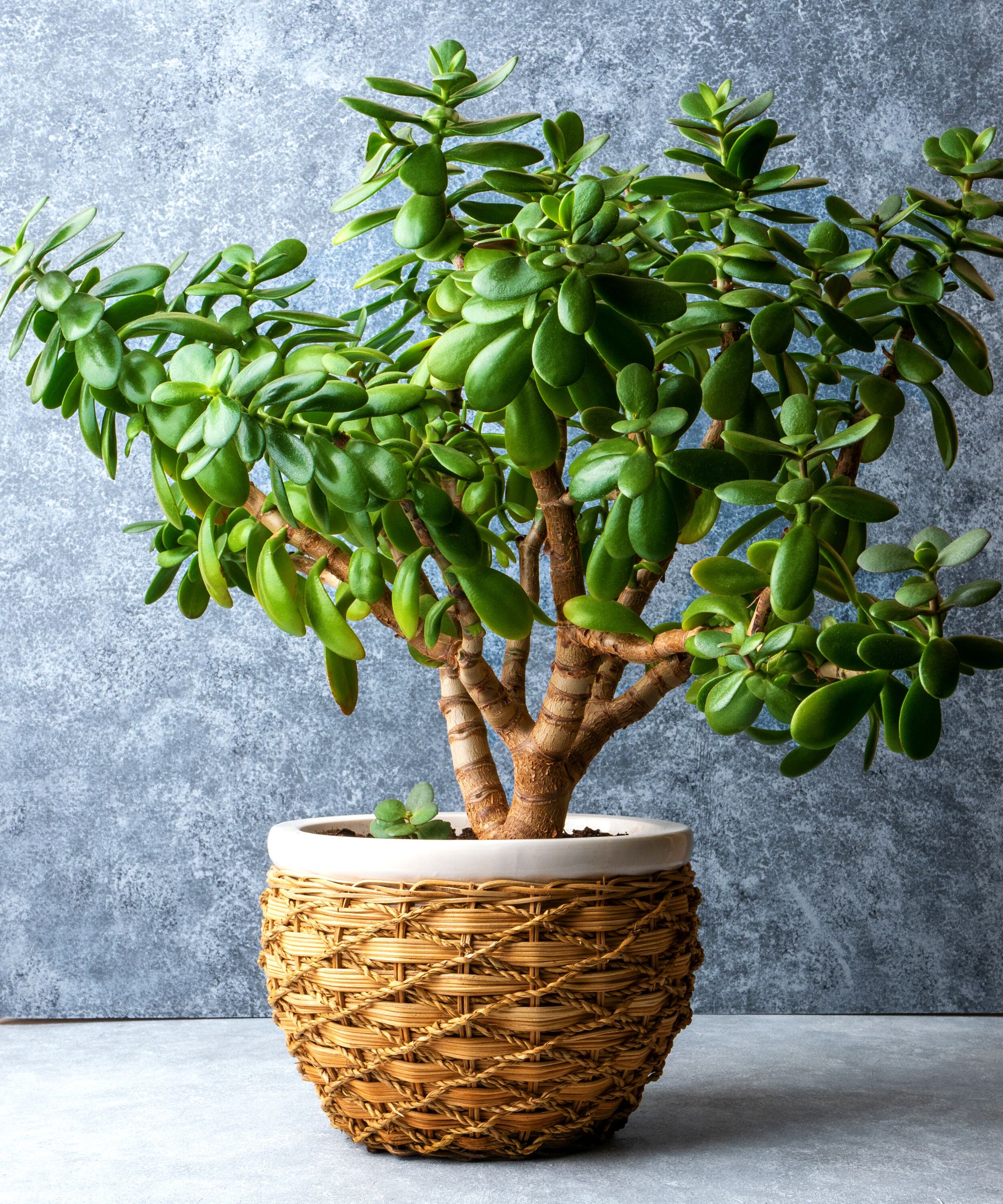
The money tree is easy to care for and is the perfect example of a plant that encourages positive Feng Shui. They are attractive to look at and are strongly associated with good luck as well as wealth and prosperity.
5. Jade plant
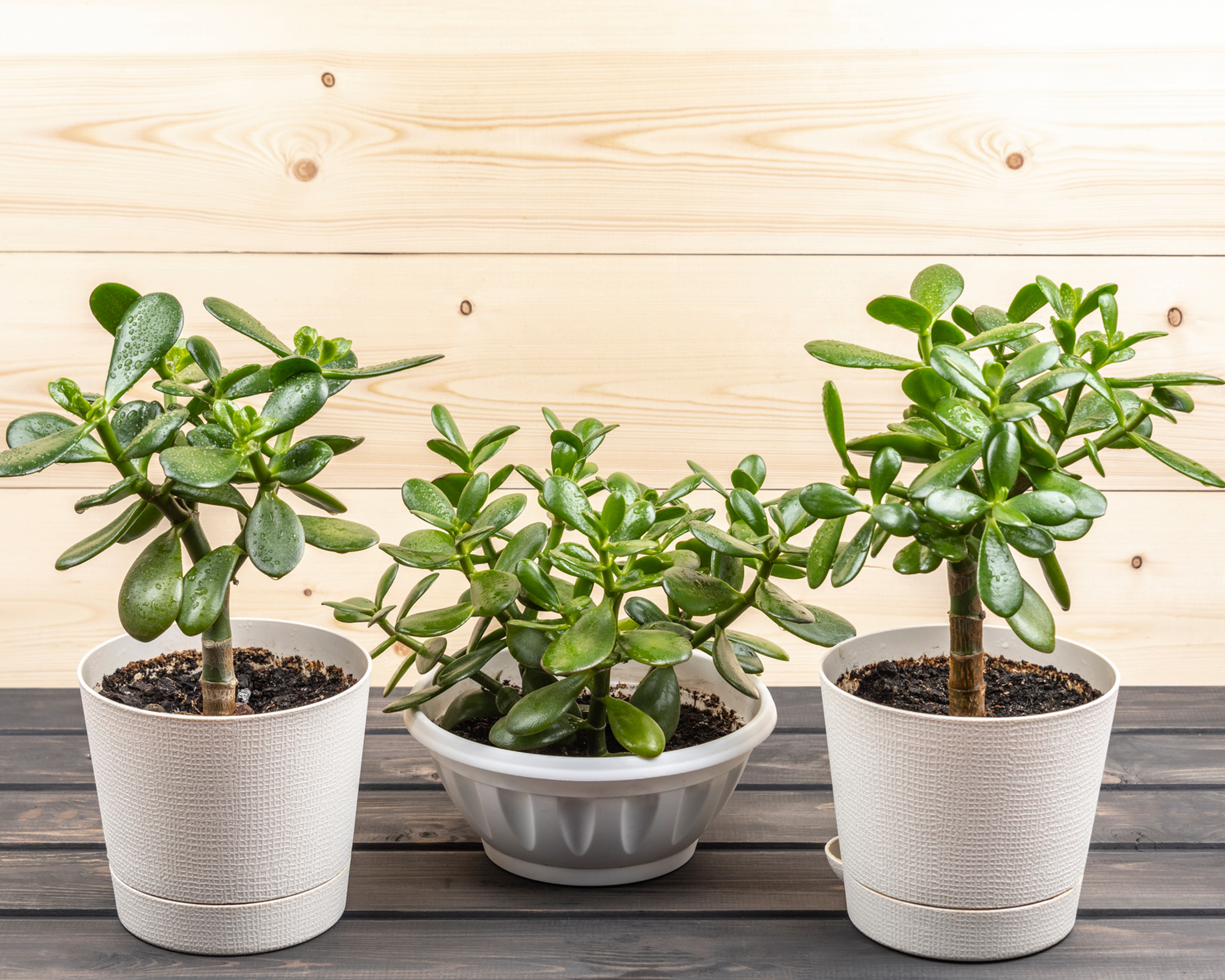
The jade plant is not only one of the world's most Instagrammed houseplants but is also a low-maintenance succulent perfect for attracting prosperity. In Chinese culture, their leaves are thought to resemble coins, and their ability to grow for generations means they are often used as prosperous heirlooms.
Where should you place plants for Feng Shui?
According to the principles of Feng Shui, the placement of objects can have a massive impact on a person's well-being.
Sadye suggests placing plants in the east or southeast sectors of your home or office as these areas are associated with health and wealth.
'The east is also associated with new beginnings, so placing plants in this area can symbolize a fresh start.
'If you're looking to improve your relationships, placing plants in the southwest sector of your home will be most beneficial. This is the area associated with love and marriage, so placing plants in this sector can help to foster harmony and happiness within your relationships.'
Where you place your plants is dependent on what effect you want to achieve.
Sign up to the Homes & Gardens newsletter
Design expertise in your inbox – from inspiring decorating ideas and beautiful celebrity homes to practical gardening advice and shopping round-ups.

Chiana has been at Homes & Gardens for two years and is our resident 'queen' of non-toxic living. She spends most of her time producing content for the Solved section of the website, helping readers get the most out of their homes through clever decluttering, cleaning, and tidying tips. She was named one of Fixr's top home improvement journalists in 2024.
-
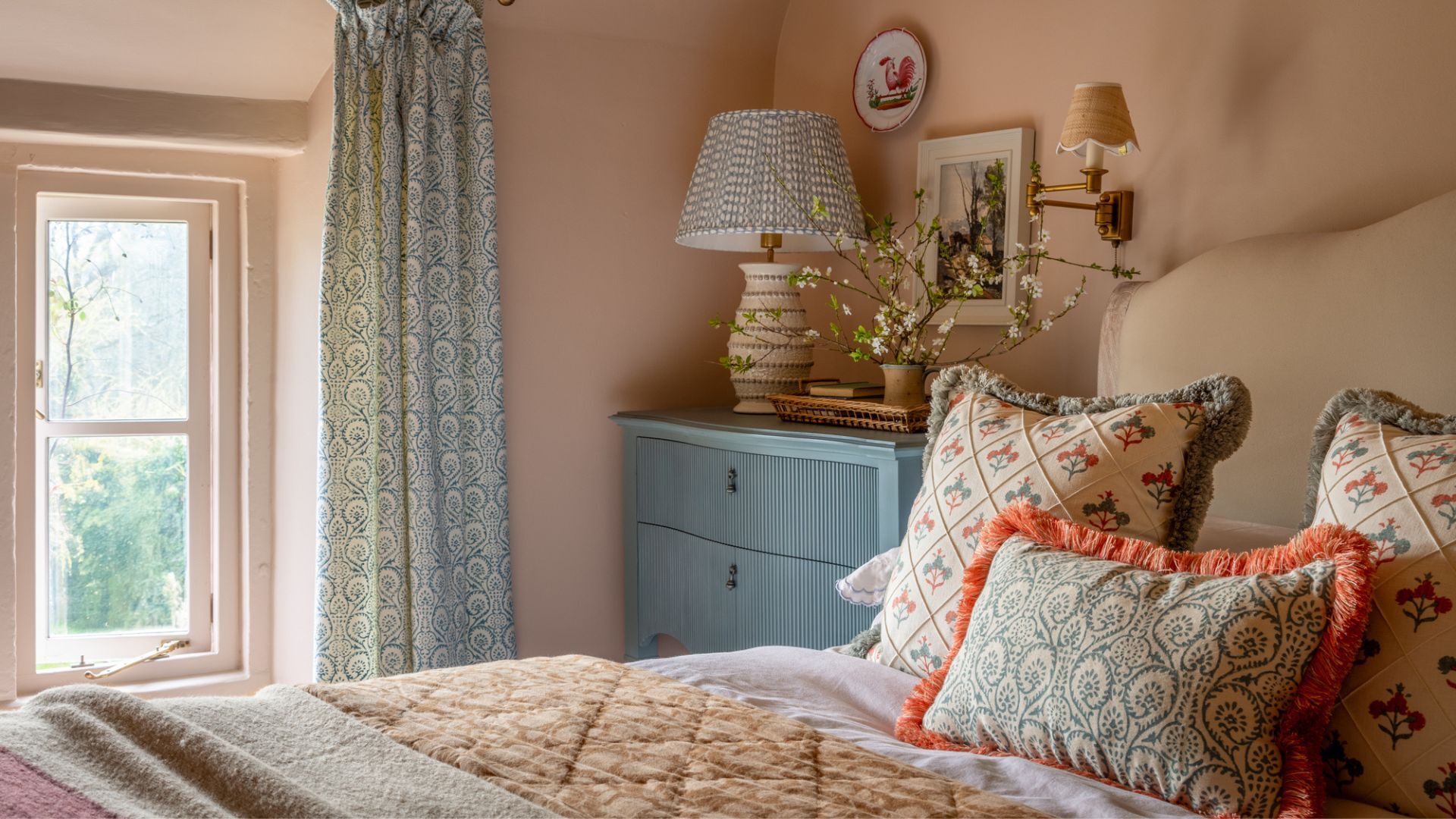 These are the 6 must-have colors to decorate with in April 2025
These are the 6 must-have colors to decorate with in April 2025What do retro-inspired yellows and beautiful blues all have in common? They're on our hot list for the season ahead
By Sophia Pouget de St Victor Published
-
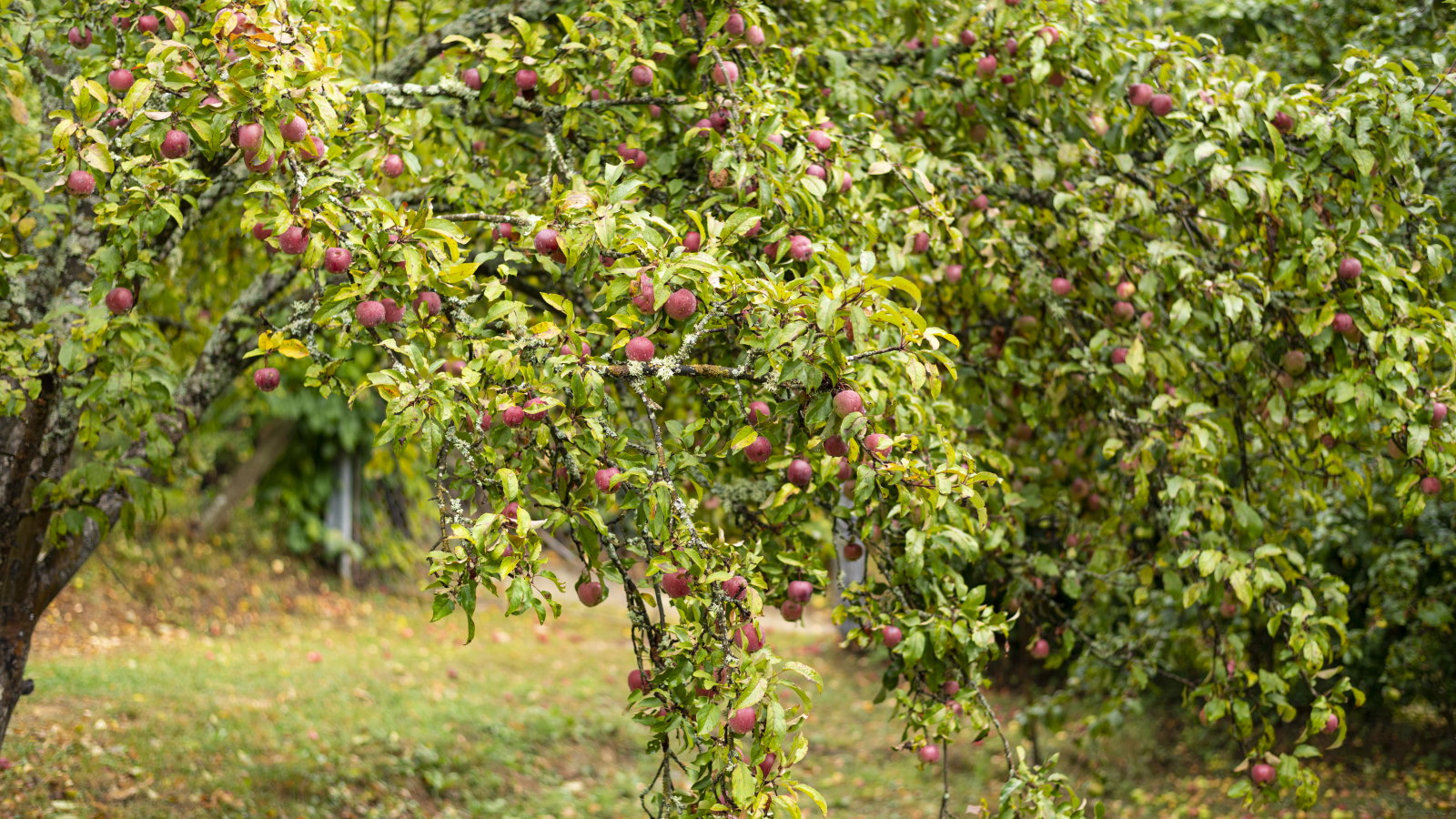 Plants never to grow next to fruit trees
Plants never to grow next to fruit treesExpert advice on which plants to keep away from fruit trees to encourage a healthy harvest
By Jacky Parker Published